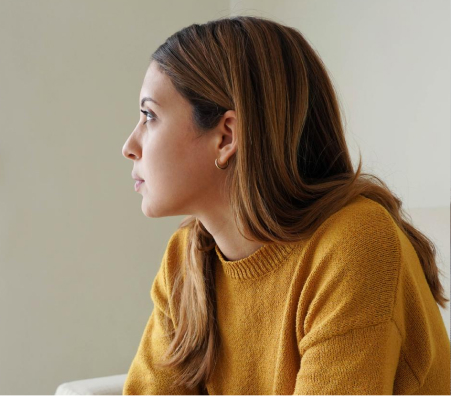Researchers are giving more attention to the topic of ADHD and relationships, resulting in the development of strategies, practical guidelines, and specific solutions for families, friends, and couples. This increased interest in the relationship between ADHD in adults and romantic relationships comes as no surprise, knowing that, according to the National Institute of Mental Health, there were over 8.5 million visits to physicians in 2019 only with ADHD as a primary diagnosis.
What we now know for sure is that adults with Attention Deficit Hyperactivity Disorder can only benefit from understanding, acceptance, and support, and we would like to lay out a few useful inputs and advice so couples can navigate ADHD-related challenges and strengthen their relationships.
Skip to:
Understanding the impact of ADHD on relationships
Adults with ADHD can experience numerous relationship difficulties due to ADHD symptoms interfering with the functioning of the couple in more ways than one. Individuals with some types of ADHD are more likely to engage in risky sexual behavior, and worse yet, ADHD is a risk factor for dating violence. They have more trouble navigating romantic relationships and show higher rejection sensitivity. Relationship issues like extramarital affairs, separation, and divorce are more frequent among couples in which at least one partner has ADHD.

Studies on ADHD and romantic relationships also show a negative association between adult ADHD and romantic relationship satisfaction for both adults with ADHD and their partners. Repeated results show more conflicts and lower intimacy and that spouses often compensate for their partners´ difficulties.
To help you better understand the correlation between ADHD and relationships, here are five impactful symptoms that often create relationship issues:
- Attention deficit – As one of the core symptoms of ADHD, difficulty in keeping attention is known to impact different aspects of one´s life, and romantic relationships are not an exception. People with ADHD tend to zone out during conversations, digress, and hop from topic to topic, leaving their partner feeling unheard or even ignored.
- Forgetfulness – Even when they pay attention and consciously agree about things, people with ADHD may forget what was discussed or agreed upon. Typically, this leaves the impression of unreliability.
- Organizational skills – Poor organizational skills impact the division of house chores and can result in partners feeling alone in what should be common tasks.
- Impulsivity – Impulsivity may demonstrate itself in various ways. Whether it´s talking without thinking that results in feelings of others being hurt or making hasty decisions that impact the whole household, impulsivity often leads to a conflict that requires careful addressing.
- Emotional lability – At times, it might be difficult for a person with ADHD to control their emotions, resulting in emotional outbursts. They might lose their temper easily, making their partner feel like they must be constantly alert.
Get Help. Get Better. Get Your Life Back.
Searching for Accredited Dual Diagnosis Mental Health Centers Near You?
Even if therapy failed previously, or are in the middle of a difficult crisis, we stand ready to support you. Our trusted behavioral health specialists will not give up on you. When you feel ready or just want someone to speak to about counseling alternatives to change your life call us. Even if we cannot assist you, we will lead you to wherever you can get support. There is no obligation. Call our hotline today.
FREE 24/7 Dual Diagnosis Mental Health Services HotlineADHD and relationship problems – both partners´ perspectives
To properly understand and address ADHD and relationship issues, it´s important to put ourselves in the shoes of both partners. Having in mind ADHD symptoms and their manifestation, both sides can suffer certain consequences.

The perspective of the individual with ADHD
For a long time, investigations of ADHD and romantic relationships were focused almost solely on the perspective of an individual with ADHD and their satisfaction. On average, adults with ADHD tend to be more satisfied than their partners but, at the same time, less satisfied than those not affected by ADHD.
On a micro level, the most frequent feelings are those of disrespect and control. They often perceive that their partner micromanages them by repeatedly telling them what to do and nagging them if something is not done as expected. They might also feel criticized and like their partner doesn´t trust them.
Additionally, they can feel subordinate as their partner tends to correct them or unloved if the partner constantly reminds them they ought to change. ADHD individuals are at higher risk of developing coexisting mental issues, such as depression. The coexistence of ADHD and Depression can further complicate addressing ADHD and relationship problems.
The perspective of the non-ADHD partner
Once research on ADHD and romantic relationships switched its focus, the specificities of the partners´ experiences came to the surface. The most prevalent feeling is frustration, and its´ source is an attempt to compensate for the partner´s difficulties.
Knowing that a person with ADHD has difficulties organizing their thoughts and following a plan often results in a vicious circle of demanding and reminding. Partners might feel like they are parenting their ADHD partner and that they cannot rely on them. All of that can make one feel lonely and unappreciated.
They often feel unwanted or needy because they are not receiving full attention and often have to actively ask for it. Finally, they are very stressed out because they carry a large portion of what is supposed to be a divided task, resulting in exhaustion.
Although it might seem like a never-ending circle, these behaviors and feelings can be avoided or successfully managed with the implementation of different strategies that address ADHD and relationship problems.
End the Emotional Pain. Get Your Life Back.
Feeling Depressed, Anxious or Struggling with Mental Health Illness? Get Safe Comfortable Mental Health Dual Diagnosis High-Quality Therapy From Counselors That Care. Begin Your Recovery Now.
Hotline: (509) 348-4077

Strategies for overcoming ADHD and relationship issues
Both theory and case studies showcase the importance of different strategies for overcoming ADHD-related relationship issues. Some of them are as follows:
- Open communication – Open and transparent communication is the basis for the success of any relationship. However, it plays an especially significant role when one of the partners is dealing with ADHD. Both partners should take steps to demonstrate acceptance and empathy. Creating a safe space for communication is crucial.
- Education about ADHD – To ensure understanding and to provide resources for both partners, education on ADHD is essential, especially when ADHD is not properly diagnosed or treated. Education is an empowering tool as it helps identify how ADHD symptoms impact a relationship. It also equips people with knowledge of how to respond to and deal with different challenges.
- Professional support – Licensed and specialized therapists or coaches will understand the topic of ADHD and relationship problems differently. They can also provide an unbiased perspective and empower couples to take the first steps toward conflict resolution.
Each of these strategies will be explained in more detail.

ADHD and relationships – communication problems
Communication issues are probably the most commonly reported issue related to ADHD and romantic relationships. Both inattentive and Attention Deficit Hyperactivity Disorder symptoms contribute to the problematic communication skills of a person with ADHD. On one end, communication issues manifest as poor listening skills due to forgetfulness, lack of attentiveness, or quick attention shifts. On the other end, ADHD symptoms could be rapid speech, digressions, over-explanations, or interrupting.
All of these can significantly impact a romantic relationship. Partners might feel like they are not being heard or can be frustrated about not getting a clear response. Moreover, partners might believe they established an agreement via communication, while an individual with ADHD might perceive the outcome of the conversation differently due to their attention deficit.
To combat communication issues in a relationship involving an individual with ADHD, we propose a few tactics for both ADHD persons and their non-ADHD partners.
As an ADHD person, you might want to try:
- Train your active listening skills – ADHD partners might struggle to stay focused on the conversation as their thoughts scatter. This is leaving non-ADHD partners feeling unheard, and active listening helps with that. You can practice active listening skills by asking questions to gain clarification or asking for recaps. Interrupting leaves a similar impression, and owning up to this mistake is a good start.
- Prevent forgetting by taking notes – This technique can ensure that your message gets across or that the conversation’s outcome is not lost. ADHD partners can take notes on things they would like to discuss or address. To work on your reliability and prevent forgetfulness, you can also take notes during conversations and set reminders to take action when needed.
- Minimize distractions – People with ADHD get easily distracted, so removing potential distractors from one´s environment can help them stay on track during a conversation. This can be achieved by planning a conversation in a quiet place or minimizing daily distractions like gadgets or sound alerts on the phone.
Comfortable Facilities & Amenities
High-Quality Mental Health Services & Behaviroal Health Substance Abuse Treatment
Rehab Centers TourRenowned Mental Health Centers. Serene Private Facilities. Inpatient Rehab Programs Vary.
Mental Health Helpline: (509) 348-4077Proven recovery success experience, backed by a Team w/ History of:
15+
Years of Unified Experience
100s
5-Star Reviews Across Our Centers
10K
Recovery Success Stories Across Our Network
- Low Patient to Therapist Ratio
- Comprehensive Dual-Diagnosis Treatment
- Complimentary Family & Alumni Programs
- Coaching, Recovery & Development Events
- Comfortable Onsite Medical Detox Center
As a non-ADHD partner, you can make an effort to:
- Practice non-judgmental speech – In an attempt to help their ADHD partners gain some structure, non-ADHD partners can become very instructional and demanding. This can often come off as criticism, and an ADHD adult might feel shame and inadequacy. To avoid these sentiments, respectful and non-judgmental speech should be used. It implies a soft start, avoiding making assumptions and focusing on observations and feelings rather than evaluation and judgment. Avoid raising your voice, and talk calmly using non-threatening words. When dissatisfaction needs to be transmitted, focus on the complaint rather than criticism.
- Use clarifying and affirming statements – Implementing statements like “I understand your point of view” or “If I understood correctly” can go a long way. They offer validation and an opportunity to clarify one’s thoughts when one struggles to find an exact way to express oneself. This contributes to feeling safe and heard, and with that, it opens space to share thoughts and feelings.
- Agree on verbal cues – As their mind tends to wander off, individuals with ADHD may sometimes need a way to be pulled back into conversation. For this, partners may agree on a verbal cue, a word, or a phrase that would act as a reminder that full attention is needed. Non-ADHD partners may even announce when they are about to speak of something important to gain full attention. This, however, should only be done upon the agreement with the partner. Otherwise, it might come off as condescending.
The necessity of education about ADHD
It seems like there has never been this much information on ADHD online, but even with that, many are still uncertain if ADHD is a mental illness. This only strengthens the conclusion that more education on the topic is needed.
Knowledge is an empowering tool for both partners as it helps to recognize, understand, and address specificities of one´s condition and lays the foundation for a successful relationship. Understanding how an ADHD brain works can offer clarification – it may lead to taking things less personally or losing the sense of guilt.
To gain knowledge, partners might turn to reputable sources on ADHD and romantic relationships. Alternatively, they might seek professional help and educate themselves through workshops or counseling.
The role of professional support in managing ADHD and romantic relationships
ADHD and relationship issues is not an easy topic to address on your own. Seeking professional support might be a solution if things become overwhelming and partners feel they are lacking the capacity or energy to deal with them.
A potential solution, in this case, might be a trained and licensed professional specializing in ADHD and relationships if one is managing their diagnosis well, but relationship issues prevail. The professional´s role is to educate, empower, and support individuals and couples managing relationship difficulties and to pave the way to long-term happiness. It does this by helping to develop coping strategies and creating a safe space for both to address communication or any other issues.

Practical guidelines for couples
The above-mentioned strategies to address ADHD and relationship problems might take time to develop. Here are four practical guidelines that can provide short-term help:
- Create mutual support system and coping strategies – No matter the support couples have outside their relationships, they should always have each other’s back. Building a safe space and finding mutual ground strengthens the relationship and creates the sensation that they are on the same side, no matter the issue.
- Incorporate behavioral strategies – Incorporating routines and reminders to manage symptoms is a simple way to avoid or address behavioral issues typical for ADHD. These strategies help deal with forgetfulness and avoid stress and negative feelings for both partners. Additionally, there is medication for ADHD that can help manage ADHD symptoms and ease up daily tasks.
- Focus on relationship strengths – Dealing with the challenges that ADHD brings sometimes puts all focus on the negative aspects of ADHD. It´s important to mention that ADHD symptoms can also have a positive contribution to a relationship. People with ADHD can be more spontaneous, infusing a romantic relationship with novelty. Hyperfocus can result in passionate engagement. Still, even this positive impact can have a secondary negative effect. Recognizing and addressing when they do is a challenge in relationships with partners with ADHD.
- Adjust expectations – Accepting ADHD as a part of one´s reality and setting realistic expectations from a partner can prevent the other partner from feeling left down. Understanding ADHD partners’ capacities and ways to address their shortcomings sets grounded expectations and helps avoid disappointment.
Building a stronger bond
Managing ADHD and relationship problems is not easy, and it´s important for partners to recognize and appreciate each other´s efforts. Small daily signs of appreciation can build stronger relationships and a sense of acceptance.
Even small changes in one´s way of speaking can reduce misunderstandings and provide validation for the partner. Taking ownership of mistakes, whether it´s wandering off in conversation or criticizing for not following through, and apologizing about it sends a signal of awareness and willingness to do better next time.
The core and necessary condition is empathy and patience, which foster a supportive and accepting environment. That sort of environment allows the couple to freely communicate their needs, dissatisfactions, and suggestions for relationship improvement.
A relationship is not only about shared responsibilities and tasks but also about the joy of spending time together. Shared experiences and activities further strengthen the relationship and create beautiful memories that can later serve as a mental resource during challenges.
Finally, it´s important to highlight that although all couples encounter problems, there are specificities when it comes to ADHD in adults and relationships. Understanding those specificities and ways to address them leads to more successful resolutions and higher satisfaction in the relationship.
Resources and support for couples
Dealing with relationship issues can be very demanding for couples, and even more so when ADHD comes into play. Luckily, there are many available resources and support systems for both ADHD and non-ADHD partners. From books and podcasts over success stories to professional help and support groups – one can find the modality that works for them and get the kind of support they need.
We Level Up Washington, with its evidence-based approach, is one of the most reliable resources for those seeking both support and guidance in managing ADHD and relationship issues emerging from the impact of ADHD. An individualized and personalized approach ensures tailored solutions for those facing challenges in the relationship or just looking to improve the relationship dynamic.
The most important takeaway is that couples do not need to face those relationship challenges alone. Even when they have the personal resources to deal with them, having support can ease things, save mental energy, and encourage personal development.
ADHD in adults and relationships improved
ADHD introduces specific challenges into a relationship that, if not addressed early, can cause frustration and dissatisfaction for both partners. Understanding the impact of ADHD on relationships is the first step toward addressing problems that might arise.
The subject of ADHD and relationships is wide and might be overwhelming, no matter your experience. Seeking information and professional support can ease things and help you navigate specific challenges of ADHD and romantic relationships.
Creating a safe space, nurturing mutual understanding and support, and implementing targeted strategies can address the specificities of ADHD and romantic relationships. Relying on the right resources and professional help along the way can make the whole process less demanding and frustrating. Adapting to ADHD and its impact can lead to a fulfilling, loving relationship.
World-class, Accredited, 5-Star Reviewed, Effective Mental Health Dual Diagnosis Programs. Complete Integrated Inpatient Rehab with Free Post Discharge Therapy Planning.
Hotline: (509) 348-4077End the Emotional Pain Rollercoaster. Gain Stability & Happiness Through Recovery Treatment. Start Mental Health Counseling Today. Get Free No-obligation Guidance by Behaviroal Health Specialists Who Understand Mental Health Recovery.
Experience Transformative Recovery at the We Level Up Treatment Center.
See our authentic success stories. Get inspired.
Get the help you deserve.



Start a New Life
Begin with a free call to a behavioral health treatment advisor. Learn more about our dual-diagnosis programs. The We Level Up treatment center network delivers recovery programs that vary by each treatment facility. Call to learn more.
- Personalized Care
- Caring Accountable Staff
- World-class Amenities
- Licensed & Accredited
- Renowned w/ 5-Star Reviews
We’ll Call You
Sources:
Ben-Naim, S., Marom, I., Krashin, M., Gifter, B., & Arad, K. (2017). Life with a partner with ADHD: The moderating role of intimacy. Journal of child and family studies, 26, 1365-1373. https://doi.org/10.1007/s10826-016-0653-9
Huynh-Hohnbaum, A. L. T., & Benowitz, S. M. (2022). Effects of adult ADHD on intimate partnerships. Journal of Family Social Work, 25(4-5), 169-184. https://doi.org/10.1080/10522158.2023.2165585
National Institute of Mental Health. https://www.nimh.nih.gov/.
Wymbs, B. T., Canu, W. H., Sacchetti, G. M., & Ranson, L. M. (2021). Adult ADHD and romantic relationships: What we know and what we can do to help. Journal of Marital and Family Therapy, 47(3), 664-681.





